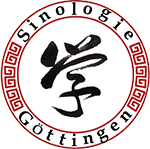
- Diese Veranstaltung hat bereits stattgefunden.
Prof. Chen Huaiyu (Arizona State University): The animal turn in the study of global history: a religious perspective
5. Juli 2018, 12:00 - 14:00
Abstract:
This talk will examine some key issues that concern scholars who attempt to figure out the historical roots of our contemporary problems. One the one hand, some scholars have been debating the intellectual and religious cause of the ecological crisis and the extinction of animal species across the global village. For instance, Lynn White Jr. noted that the Christian dogma in the West contributed to the dominance of humans over animals and nature. On the other hand, the development of modern biotechnology and genetic engineering might have profoundly changed the non-human animals in the technology-assisted farm industry. The modern state of biotechnology has ended the traditional contract between humans and nature. Numerous plants and animals are cultivated and reared in the human-created or modified environment. Animals are no longer aware of nature’s changes when they do not witness the Sunrise and Sunset. Some ethicists and religious scholars are concerned that the animality of these technology-assisted reared animals is deprived because these animals now live in a human-made environment, which cannot even be called an ecological system. The human-animal relations have entered a new phase. This talk hopes to offer some observations about how the roles of major religions have been redefined and reshaped in the global ecological crisis and farm industry.
Short bio:
Huaiyu Chen received his MA in history from Peking University, China and Ph.D in religious studies from Princeton University, USA. Currently he is an associate professor at Arizona State University where he teaches Buddhism and Chinese Religions. He has published several monographs and numerous articles on Buddhist rituals and monastic culture, the interactions among Buddhism, Christianity, and Daoism, animals in Chinese religions, Western missionaries in China, and modern Chinese intellectual history. In this summer, as a visiting scholar at the Max Planck Institute for the History of Science in Berlin, he is finishing up his English book on animals in medieval Chinese religions.
